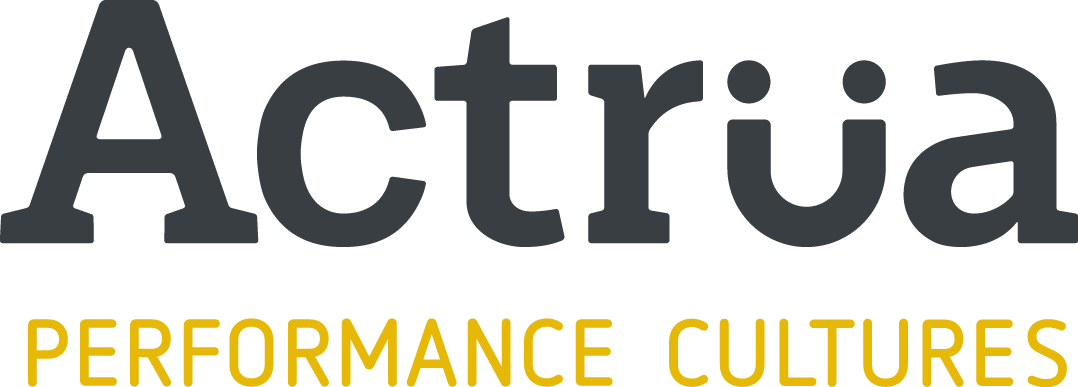The mind that opens to a new idea, never returns to its original size.
What a wonderful quote this is by Albert Einstein. A brilliant and creative thinker who had much to share about learning. He also famously said “Once you stop learning, you start dying.” Who needs any more convincing than that?
Just as learning is an integral part of life, we would propose that coaching is integral to lifelong learning. Coaching can take many forms, and in a business and leadership context, it is fundamentally about:
“Unlocking people’s potential to maximize their own performance. It is helping them to learn rather than teaching them.” John Whitmore
There are many compelling reasons that explain why coaching is an effective approach for learning and development. In this article, we will briefly explore four major reasons why coaching works.
It can change how we think
Through modern developments in neuroscience, we now better understand the plasticity of our brain. We know that we can rewire our brain and that a neural pathway can be turned into a flowing major freeway, or alternatively a quiet country lane. By becoming aware of the thinking that drives our behaviours, we can create new and more effective or desired habits. A habit being the approach we automatically take with little or no conscious thought.
Changing habits can be difficult. It requires commitment, focus and persistence. But it can actually be much easier to achieve if you know how to do it and some support can go a long way. The concept of purposeful practice is central to performance development. Purposeful practice involves pushing outside our comfort zone to create new or better habits and skills. It is hard to do the topic due justice here. However, some great books have been written on the topic and they include, Outliers by Malcolm Gladwell, Peak Performance by Brad Stulberg and Bounce by Matthew Syed, just to name a few. If you are interested in the science of performance improvement, these are essential reading. There are many case studies to show how purposeful practice has become a fundamental approach for elite sport and music coaching. However, it also applies equally to leadership and business.
Let’s use giving difficult feedback as an example. This is something that challenges many leaders, no matter the level of seniority. The more often you do it, the better you get. Or maybe this is not quite correct. With purposeful practice you will certainly improve. But simple repetition does not mean better results. It can simply mean the same results. If we keep doing something the wrong way, we are only going to reinforce this sub-optimal way and not develop new and better habits.
Rather than just being your own critique, how about getting independent feedback regarding how you prepare and deliver difficult feedback? This will certainly require some reflection and review of how you approach this skill. It may also involve some observation of you in action. Yes, this can be a bit uncomfortable – but that is the point. This will help to push you outside of your comfort zone and therefore lift performance to another level.
There may then be some very specific skills identified for further improvement. The preparation for instance and the mindset you bring to the conversation. So, for the next few courageous conversations, you purposefully practice a specific improvement in your preparation. This becomes your new norm. Sometimes it can be the “one percenters” that make a big difference.
There is a term for “thinking about what we think” and it is meta-cognition. A good coach knows all about it and understands how it can influence behavioural change.
Leadership can be lonely
The second reason that coaching can be so effective, particularly for leadership development, is because the role of leader can be very lonely. In the ideal work environment, we can be open and vulnerable with everyone – manager, team members and peers alike. However, this is often not the case. Will asking questions, exploring ideas or seeking feedback be portrayed as a sign of weakness or interpreted as a lack confidence?
In a recent survey by the International Coach Federation, clients were asked to identify the role of coaches that they valued the most. The role most highly valued was that of Sounding Board (85%). For the record, other valued roles included motivator, managing priorities and goal-setting, and building self-awareness.
It is the good leaders that surround themselves with great people. Sometimes it is a subject matter expert they will turn too. They may have a mentor, or mentors, that they turn to for support. However, if it is true growth that they are seeking, then it is hard to go past the skillset that an experienced professional coach can offer.
It fits the modern workplace
The workplace of today is fast moving, fast changing. Disruption, agile and emergent are terms that we are all becoming pretty familiar with.
Research consistently tells us that leaders are struggling. We also know that employee engagement levels are heading the wrong way in many organisations. The way that we support the development of our leaders and people is not keeping up with the modern work environment. Sink or swim has become the mantra for many. This approach is neither effective nor fair.
Coaching can be an ideal fit to deliver development in the modern workplace. It can be flexible, targeted, delivered in the workplace and with just-in-time delivery. Coaching can be used to support and help solve current issues as they arise. We know that the time a leader needs the most support is at the time of promotion. Each leadership level is very different from the previous one. A Senior Manager (Manager of Managers) faces very different challenges to their previous Manager role. Should we leave the new leader to their own devices to discover the pitfalls and challenges of their new role? That just doesn’t make any sense.
It is well known that people, and particularly the talented ones, are really the only true source of differentiation in business. Ideas and technology can be easily and quickly copied today. Nurturing and developing key talent is fundamental to building a performance culture. Coaching comes into own regarding its effectiveness in engaging, developing and accelerating the growth of the key talent.
A coaching program can be tailored to the unique needs of the individual and it can focus on their specific development needs. The coaching can be delivered face-to-face, online by video or phone. Coaching is engaging, effective and highly valued by participants.
It reinforces and sustains change.
Coaching can add immense value when deployed as part of a blended learning solution. No matter how well a development program is designed or delivered, we know that some retention of learning is lost over time. But this can be minimized through the inclusion of coaching follow-up to not only reinforce and sustain the learning, but to build on it and take it to another level. There is a big difference being “knowing” something and actual “doing” it.
A good coach will challenge. If you don’t want to be taken out of your comfort zone, then don’t engage a coach. Growth happens on the edge of the comfort zone. A good coach knows where, when and how hard to push.
The coach will hold you to account. It is too easy to extend or push out your own deadline. A coach can hold you to the commitments you have made to yourself, and to others. The transfer of general knowledge learnt on a development program into tangible actions delivered in the workplace can convert massive value to an organisation.
In closing, Einstein also said that “Life is like riding a bicycle. To keep balance, you must keep moving.” Coaching can be an excellent approach to help us keep moving in our personal and professional lives. It can be reflective, energizing and drive change and action.
If you would like to learn about Actrua’s range of True Impact Coaching solutions, please do not hesitate to contact our Coaching Practice Leader, Louyse Ahlquist on 07 3221 4388 or louyse.ahlquist@actrua.com.au







